World
Americans Find Ways to Visit Cuba Despite Tourism Ban

In this May 15, 2015 photo, Washington State University, WSU, professors Benjamin Shors and Ed Rabel, talk with students including Jessica Shapiro, second from right, and Selena Alvarado, at the Park View Hotel in Havana. They were part of a group of journalism students from WSU visiting Cuba on an educational trip to meet with Cuban media and Havana residents. The group is among an increasing number of Americans to visit Havana since President Barack Obama announced a thaw in U.S.-Cuba relations. (AP Photo/Beth J. Harpaz)
BETH J. HARPAZ, AP Travel Editor
HAVANA (AP) — “Is travel to Cuba for tourist activities permitted? No.” That’s what the U.S. Treasury Department website says. And yet Havana is loaded with Americans, from the Floridita bar, where they pose for photos with a bust of Ernest Hemingway, to the Rum Museum, where they swig rum samples after trudging through dim displays of old casks.
Sure, some Americans follow the rules on sanctioned travel — bringing supplies to Cuban churches or synagogues, for example, on a religious activities license. Others come on approved group tours known as “people-to-people” trips with themed itineraries like the arts.
But the 36 percent increase in American visitors here since U.S. President Barack Obama and Cuban President Raul Castro announced a thaw in relations includes many travelers who sidestep the rules. Some travel via third countries by flying to Cuba from Mexico or the Bahamas. Others fly on their own from the U.S., casually filling out paperwork for one of 12 categories of travel authorized by the U.S., without much worry that anyone will check on its accuracy.
The fact is, “there’s been almost no active enforcement” of the tourism ban under the Obama administration, according to attorney Robert Muse, an expert on the legal aspects of Cuba travel.
Here are five vignettes of Americans visiting Cuba on different types of trips.
___
‘IT’S SO EASY’
New Yorker Zach Chaltiel, 28, traveled to Havana from the U.S. with some buddies after graduating from law school. He researched the trip online, booked a villa through Airbnb, hired a driver, and filled out a form saying the purpose of his trip was “support for the Cuban people,” one of the 12 authorized travel categories.
“It’s so easy,” said Chaltiel as he shared drinks with friends at the Hotel Nacional, overlooking the sea as a peacock strutted by. “I just wanted to go before it becomes all Americanized.”
___
CURIOUS ABOUT AN ISOLATED COUNTRY
Two Americans peered inside Hemingway’s house, Finca Vigia, marveling at the animal trophies, bookshelves and open liquor bottles that made it seem as if the writer was still there. Nearby, Cuban students lined up for a peek and tourists from around the world took photos.
But the Americans didn’t want to reveal too much about themselves other than first names, Sabine and Anna. They’d come via the Bahamas because getting permission to travel from the U.S. seemed complicated, given their varied interests and lack of official itinerary. Mostly, said Sabine, “we’re interested in coming to a country that has been so isolated.”
___
DIAPERS, ASPIRIN AND RELIGION
They traveled from Manhattan to a synagogue in Havana, bringing diapers, aspirin and questions. Nicole Gordon, Roger Bernstein and daughters Danielle and Lara obtained permission to travel to Cuba for religious activities with a letter signed by the New York Board of Rabbis. A Cuban government tour guide accompanied them to El Patronato synagogue in Old Havana and other sites like Jewish cemeteries.
“We want to tell the people in America what we see here, the conditions,” Gordon said as the guide translated for members of El Patronato. The visitors saw tattered Spanish-Hebrew prayer books, broken stained glass windows and old photos. And they learned facts like this: There is no rabbi in Cuba, so couples marry under civil law, then wait for visiting rabbis to perform group weddings.
After their donations were delivered, Bernstein tucked some cash in a charity box. “We’re hoping to be a little bit helpful,” Gordon said.
___
SAILING FROM KEY WEST TO HAVANA
On May 16, five 16-foot Hobie Cat sailboats and over a dozen support vessels ran the first official boat race from Key West to Havana in more than 50 years. The race was originally scheduled for April 18 but was postponed because getting U.S. government permission took longer than expected. Two Hobies were wrecked in rough seas on the way over — though all crewmembers were accounted for — but organizer George Bellenger said the trip’s value outweighed the losses.
“We kicked the doors open with our Hobie Cats,” he said over lunch at the Hemingway Marina in Havana, where the group stayed in a hotel awaiting a boat parade in Havana harbor and a friendly race with Cuban Olympic sailors. Describing centuries of connections between Key West and Havana, he added: “Our working mantra is ‘Bridging cultural divides through traditional maritime heritage.'”
___
CHALLENGING STUDENTS TO THINK
A group of Washington State University journalism students spent 11 days in Cuba, meeting Cuban journalists at state-run newspapers and Radio Havana, along with ordinary Cubans, from a taxi driver to a hairdresser. The trip was authorized under U.S. rules as educational, and professors kept careful records of their itineraries, as required by regulations — even though they’ve never, from past trips, been asked for proof of their activities.
Especially eye-opening was a visit they made to the “The Park of Sorrow,” where Cubans seek permission from U.S. officials in Havana to travel to America. Most are denied, hence the sorrow.
“Socialism, democracy — it’s not so black and white,” said student Jessica Shapiro. “I’m feeling very conflicted and enlightened.”
“Our students should be challenged to develop their thinking,” said Benjamin Shors, one of the professors. “What better place to foster intellectual development than here?”
Copyright 2015 The Associated Press. All rights reserved. This material may not be published, broadcast, rewritten or redistributed.
Activism
Oakland Ambassadors Strengthen Ties and Aid Efforts in Ghana
Oakland natives and esteemed members of the African American Sports and Entertainment Group (AASEG), Jonathan P. Jones and Dr. Maritony Efua Jones, recently embarked on a significant journey to Ghana as guests of the World Martial Authority Ghana. This trip signifies a crucial opportunity to bolster partnerships, explore new avenues of collaboration, and contribute to impactful initiatives in Ghana.
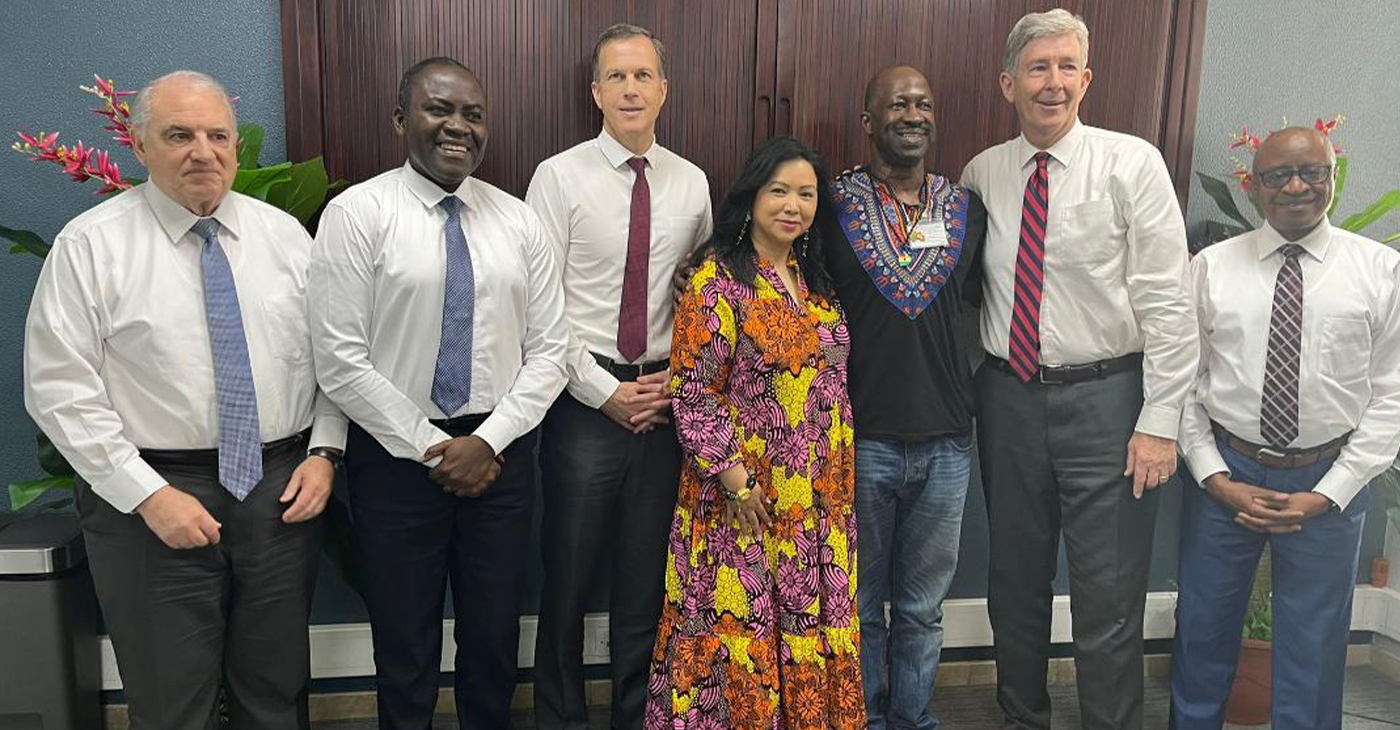
By Post Staff
Oakland natives and esteemed members of the African American Sports and Entertainment Group (AASEG), Jonathan P. Jones and Dr. Maritony Efua Jones, recently embarked on a significant journey to Ghana as guests of the World Martial Authority Ghana.
This trip signifies a crucial opportunity to bolster partnerships, explore new avenues of collaboration, and contribute to impactful initiatives in Ghana.
Upon their arrival at Katota Airport in Accra, Ghana, the Joneses were warmly received by His Royal Majesty Okatakyie Asafo Boakye III, the distinguished king of Sanzule Kingdom in the Eastern Nzema, and Etse Nyamedi of World Martial Authority, Ghana.
Nyamedi accompanied the Joneses to the city of Mepe, which had recently experienced flooding, to assess damages and engage with local leaders, elders, and youth regarding the city’s urgent needs after major floods last fall.
Key concerns and priorities identified by the community include comprehensive flood mitigation measures, agricultural support, housing initiatives, educational enhancements, improved healthcare access, and the development of communal recreational spaces.
The Joneses were also graciously invited to meet with leaders of The Church of Jesus Christ of Latter-day Saints at their headquarters in Accra. This meeting provided insights into ongoing humanitarian efforts in Ghana and explored avenues for collaboration to further assist Ghanaian communities.
The LDS leaders shared their prompt response to the recent flood, demonstrating their commitment to humanitarian aid by dispatching substantial supplies including medical provisions, sanitation items, blankets, and food to assist flood victims just four days after the disaster.
Additionally, Boakye extended a special invitation to the Joneses to his palace, where they were pleasantly surprised with a heartfelt recognition ceremony. Maritony Jones was honored as the Queen Mother of the Sanzule Kingdom in acknowledgment of her dedicated work, while Jonathan Jones was lauded and welcomed as the ambassador of the Sanzule Kingdom, symbolizing a meaningful homecoming to their ancestral land.
The visit not only strengthens ties between Oakland and Ghana but also underscores the collaborative spirit and commitment to meaningful progress and humanitarian endeavors shared by all involved parties.
Barbara Lee
Congresswoman Barbara Lee Issues Statement on Deaths of Humanitarian Aid Volunteers in Gaza
On April 2, a day after an Israeli airstrike erroneously killed seven employees of World Central Kitchen (WCK), a humanitarian organization delivering aid in the Gaza Strip, a statement was release by Rep. Barbara Lee (D-CA-12). “This is a devastating and avoidable tragedy. My prayers go to the families and loved ones of the selfless members of the World Central Kitchen team whose lives were lost,” said Lee.

By California Black Media
On April 2, a day after an Israeli airstrike erroneously killed seven employees of World Central Kitchen (WCK), a humanitarian organization delivering aid in the Gaza Strip, a statement was release by Rep. Barbara Lee (D-CA-12).
“This is a devastating and avoidable tragedy. My prayers go to the families and loved ones of the selfless members of the World Central Kitchen team whose lives were lost,” said Lee.
The same day, it was confirmed by the organization that the humanitarian aid volunteers were killed in a strike carried out by Israel Defense Forces (IDF). Prior to the incident, members of the team had been travelling in two armored vehicles marked with the WCF logo and they had been coordinating their movements with the IDF. The group had successfully delivered 10 tons of humanitarian food in a deconflicted zone when its convoy was struck.
“This is not only an attack against WCK. This is an attack on humanitarian organizations showing up in the direst situations where food is being used as a weapon of war. This is unforgivable,” said Erin Gore, chief executive officer of World Central Kitchen.
The seven victims included a U.S. citizen as well as others from Australia, Poland, the United Kingdom, Canada, and Palestine.
Lee has been a vocal advocate for a ceasefire in Gaza and has supported actions by President Joe Biden to airdrop humanitarian aid in the area.
“Far too many civilians have lost their lives as a result of Benjamin Netanyahu’s reprehensible military offensive. The U.S. must join with our allies and demand an immediate, permanent ceasefire – it’s long overdue,” Lee said.
Bay Area
Nigerian Bank Chief Killed in Helicopter Crash on Way to Superbowl XVIII
According to the San Bernardino County Sheriff’s Dept., the crash occurred near Nipton, on the edge of the Mojave Desert Preserve. The poor weather conditions — rain, wind and snow showers—may have contributed to the accident, although the investigation is not complete. All six aboard were killed. Herbert Wigwe, 57, founded Access Bank in 1989, and it became the country’s largest competitor, Diamond Bank in 2018.
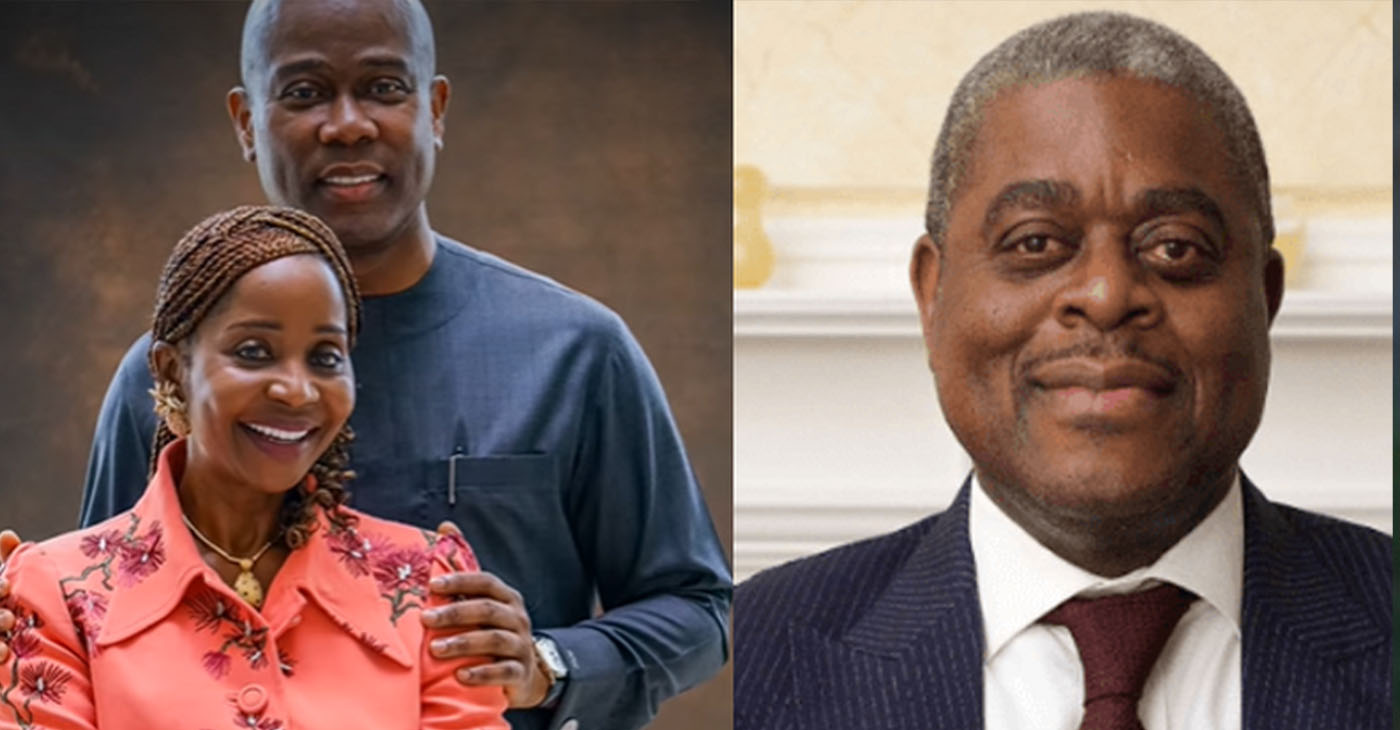
By Post Staff
The co-founder of one of Nigeria’s largest banks died with his wife, son and three others when the helicopter transporting them from Palm Springs, Ca., to Boulder City, Nev. to attend the fifty-eighth SuperBowl at the stadium outside Las Vegas crashed on Feb. 9.
According to the San Bernardino County Sheriff’s Dept., the crash occurred near Nipton, on the edge of the Mojave Desert Preserve. The poor weather conditions — rain, wind and snow showers—may have contributed to the accident, although the investigation is not complete. All six aboard were killed
Herbert Wigwe, 57, founded Access Bank in 1989, and it became the country’s largest competitor, Diamond Bank in 2018.
More recently, Wigwe was planning to open a banking service in Asia this year after making successful expansions to other parts of Africa, including South Africa, Kenya, and Botswana.
Nigerian President Bola Tinubu described Wigwe’s death as an ‘overwhelming tragedy.”
Oakland resident and Nigerian immigrant Kayode Gbadebo agrees with Tinubu. He met Wigwe in Nigeria but crossed paths with him in London in 2006. Wigwe, he said, “took risks.”
He was young and people thought he couldn’t do what he intended, which was not so much about money but community.
“He was more like Jesus in washing the feet of the poor– Wigwe was culturizing community,” Gbadebo said.
“There will never be another like him. This is a deep, deep loss” and he hopes everyone will eventually “be comforted.”
He was also disappointed that a replacement has already been named even before Wigwe is buried. “It is not reasonable. You don’t want a vacuum, but it’s” not fair to the family, Gbadebo observed.
Wigwe had also been working to solve the migration issues from African countries, believing that “investing in higher education was key to controlling mass migration, which “is destabilising countries across the world,” BBC News reported.
“We need to take a holistic approach to address global migration, starting with our traditional framework for international development,” Wigwe wrote.
To that end, according to BBC News, Wigwe was preparing to open Wigwe University in Niger, where he was from.
“The best place to limit migration is not in the middle of the Mediterranean or the English Channel or the Rio Grande. It is in the home countries that so many migrants are so desperate to leave,” he wrote, saying his university was an opportunity for him “to give back to society.”
Besides Wigwe and his wife, Chizoba Nwuba Wigwe, and one son, two crew members and Bimbo Ogunbanjo, former group chairman of the Nigerian Exchange Group Plc, were also killed in the crash.
According to Wikipedia, three other children survive Wigwe.
In his statement reported in People magazine, Tinubu described Wigwe as “a distinguished banker, humanitarian, and entrepreneur.”
“I pray for the peaceful repose of the departed and ask God Almighty to comfort the multitude of Nigerians who are grieving and the families of the deceased at this deeply agonizing moment,” the president said.
He added, “Their passing is an overwhelming tragedy that is shocking beyond comprehension.”
Besides feeling the tremendous loss, Gbadebo fears the disorder and greed that will follow. “It’s a mess,” he said.
People magazine, BBC News and Wikipedia were the sources for this report.
-

 Community3 weeks ago
Community3 weeks agoFinancial Assistance Bill for Descendants of Enslaved Persons to Help Them Purchase, Own, or Maintain a Home
-

 Business3 weeks ago
Business3 weeks agoV.P. Kamala Harris: Americans With Criminal Records Will Soon Be Eligible for SBA Loans
-

 Activism3 weeks ago
Activism3 weeks agoOakland Post: Week of April 10 – 16, 2024
-

 Community3 weeks ago
Community3 weeks agoAG Bonta Says Oakland School Leaders Should Comply with State Laws to Avoid ‘Disparate Harm’ When Closing or Merging Schools
-

 Community2 weeks ago
Community2 weeks agoRichmond Nonprofit Helps Ex-Felons Get Back on Their Feet
-

 Community2 weeks ago
Community2 weeks agoOakland WNBA Player to be Inducted Into Hall of Fame
-

 Community2 weeks ago
Community2 weeks agoRPAL to Rename Technology Center for Retired Police Captain Arthur Lee Johnson
-

 Activism1 week ago
Activism1 week agoOakland Post: Week of April 24 – 30, 2024
World
Americans Find Ways to Visit Cuba Despite Tourism Ban

In this May 15, 2015 photo, Washington State University, WSU, professors Benjamin Shors and Ed Rabel, talk with students including Jessica Shapiro, second from right, and Selena Alvarado, at the Park View Hotel in Havana. They were part of a group of journalism students from WSU visiting Cuba on an educational trip to meet with Cuban media and Havana residents. The group is among an increasing number of Americans to visit Havana since President Barack Obama announced a thaw in U.S.-Cuba relations. (AP Photo/Beth J. Harpaz)
BETH J. HARPAZ, AP Travel Editor
HAVANA (AP) — “Is travel to Cuba for tourist activities permitted? No.” That’s what the U.S. Treasury Department website says. And yet Havana is loaded with Americans, from the Floridita bar, where they pose for photos with a bust of Ernest Hemingway, to the Rum Museum, where they swig rum samples after trudging through dim displays of old casks.
Sure, some Americans follow the rules on sanctioned travel — bringing supplies to Cuban churches or synagogues, for example, on a religious activities license. Others come on approved group tours known as “people-to-people” trips with themed itineraries like the arts.
But the 36 percent increase in American visitors here since U.S. President Barack Obama and Cuban President Raul Castro announced a thaw in relations includes many travelers who sidestep the rules. Some travel via third countries by flying to Cuba from Mexico or the Bahamas. Others fly on their own from the U.S., casually filling out paperwork for one of 12 categories of travel authorized by the U.S., without much worry that anyone will check on its accuracy.
The fact is, “there’s been almost no active enforcement” of the tourism ban under the Obama administration, according to attorney Robert Muse, an expert on the legal aspects of Cuba travel.
Here are five vignettes of Americans visiting Cuba on different types of trips.
___
‘IT’S SO EASY’
New Yorker Zach Chaltiel, 28, traveled to Havana from the U.S. with some buddies after graduating from law school. He researched the trip online, booked a villa through Airbnb, hired a driver, and filled out a form saying the purpose of his trip was “support for the Cuban people,” one of the 12 authorized travel categories.
“It’s so easy,” said Chaltiel as he shared drinks with friends at the Hotel Nacional, overlooking the sea as a peacock strutted by. “I just wanted to go before it becomes all Americanized.”
___
CURIOUS ABOUT AN ISOLATED COUNTRY
Two Americans peered inside Hemingway’s house, Finca Vigia, marveling at the animal trophies, bookshelves and open liquor bottles that made it seem as if the writer was still there. Nearby, Cuban students lined up for a peek and tourists from around the world took photos.
But the Americans didn’t want to reveal too much about themselves other than first names, Sabine and Anna. They’d come via the Bahamas because getting permission to travel from the U.S. seemed complicated, given their varied interests and lack of official itinerary. Mostly, said Sabine, “we’re interested in coming to a country that has been so isolated.”
___
DIAPERS, ASPIRIN AND RELIGION
They traveled from Manhattan to a synagogue in Havana, bringing diapers, aspirin and questions. Nicole Gordon, Roger Bernstein and daughters Danielle and Lara obtained permission to travel to Cuba for religious activities with a letter signed by the New York Board of Rabbis. A Cuban government tour guide accompanied them to El Patronato synagogue in Old Havana and other sites like Jewish cemeteries.
“We want to tell the people in America what we see here, the conditions,” Gordon said as the guide translated for members of El Patronato. The visitors saw tattered Spanish-Hebrew prayer books, broken stained glass windows and old photos. And they learned facts like this: There is no rabbi in Cuba, so couples marry under civil law, then wait for visiting rabbis to perform group weddings.
After their donations were delivered, Bernstein tucked some cash in a charity box. “We’re hoping to be a little bit helpful,” Gordon said.
___
SAILING FROM KEY WEST TO HAVANA
On May 16, five 16-foot Hobie Cat sailboats and over a dozen support vessels ran the first official boat race from Key West to Havana in more than 50 years. The race was originally scheduled for April 18 but was postponed because getting U.S. government permission took longer than expected. Two Hobies were wrecked in rough seas on the way over — though all crewmembers were accounted for — but organizer George Bellenger said the trip’s value outweighed the losses.
“We kicked the doors open with our Hobie Cats,” he said over lunch at the Hemingway Marina in Havana, where the group stayed in a hotel awaiting a boat parade in Havana harbor and a friendly race with Cuban Olympic sailors. Describing centuries of connections between Key West and Havana, he added: “Our working mantra is ‘Bridging cultural divides through traditional maritime heritage.'”
___
CHALLENGING STUDENTS TO THINK
A group of Washington State University journalism students spent 11 days in Cuba, meeting Cuban journalists at state-run newspapers and Radio Havana, along with ordinary Cubans, from a taxi driver to a hairdresser. The trip was authorized under U.S. rules as educational, and professors kept careful records of their itineraries, as required by regulations — even though they’ve never, from past trips, been asked for proof of their activities.
Especially eye-opening was a visit they made to the “The Park of Sorrow,” where Cubans seek permission from U.S. officials in Havana to travel to America. Most are denied, hence the sorrow.
“Socialism, democracy — it’s not so black and white,” said student Jessica Shapiro. “I’m feeling very conflicted and enlightened.”
“Our students should be challenged to develop their thinking,” said Benjamin Shors, one of the professors. “What better place to foster intellectual development than here?”
Copyright 2015 The Associated Press. All rights reserved. This material may not be published, broadcast, rewritten or redistributed.
Activism
Oakland Ambassadors Strengthen Ties and Aid Efforts in Ghana
Oakland natives and esteemed members of the African American Sports and Entertainment Group (AASEG), Jonathan P. Jones and Dr. Maritony Efua Jones, recently embarked on a significant journey to Ghana as guests of the World Martial Authority Ghana. This trip signifies a crucial opportunity to bolster partnerships, explore new avenues of collaboration, and contribute to impactful initiatives in Ghana.

By Post Staff
Oakland natives and esteemed members of the African American Sports and Entertainment Group (AASEG), Jonathan P. Jones and Dr. Maritony Efua Jones, recently embarked on a significant journey to Ghana as guests of the World Martial Authority Ghana.
This trip signifies a crucial opportunity to bolster partnerships, explore new avenues of collaboration, and contribute to impactful initiatives in Ghana.
Upon their arrival at Katota Airport in Accra, Ghana, the Joneses were warmly received by His Royal Majesty Okatakyie Asafo Boakye III, the distinguished king of Sanzule Kingdom in the Eastern Nzema, and Etse Nyamedi of World Martial Authority, Ghana.
Nyamedi accompanied the Joneses to the city of Mepe, which had recently experienced flooding, to assess damages and engage with local leaders, elders, and youth regarding the city’s urgent needs after major floods last fall.
Key concerns and priorities identified by the community include comprehensive flood mitigation measures, agricultural support, housing initiatives, educational enhancements, improved healthcare access, and the development of communal recreational spaces.
The Joneses were also graciously invited to meet with leaders of The Church of Jesus Christ of Latter-day Saints at their headquarters in Accra. This meeting provided insights into ongoing humanitarian efforts in Ghana and explored avenues for collaboration to further assist Ghanaian communities.
The LDS leaders shared their prompt response to the recent flood, demonstrating their commitment to humanitarian aid by dispatching substantial supplies including medical provisions, sanitation items, blankets, and food to assist flood victims just four days after the disaster.
Additionally, Boakye extended a special invitation to the Joneses to his palace, where they were pleasantly surprised with a heartfelt recognition ceremony. Maritony Jones was honored as the Queen Mother of the Sanzule Kingdom in acknowledgment of her dedicated work, while Jonathan Jones was lauded and welcomed as the ambassador of the Sanzule Kingdom, symbolizing a meaningful homecoming to their ancestral land.
The visit not only strengthens ties between Oakland and Ghana but also underscores the collaborative spirit and commitment to meaningful progress and humanitarian endeavors shared by all involved parties.
Barbara Lee
Congresswoman Barbara Lee Issues Statement on Deaths of Humanitarian Aid Volunteers in Gaza
On April 2, a day after an Israeli airstrike erroneously killed seven employees of World Central Kitchen (WCK), a humanitarian organization delivering aid in the Gaza Strip, a statement was release by Rep. Barbara Lee (D-CA-12). “This is a devastating and avoidable tragedy. My prayers go to the families and loved ones of the selfless members of the World Central Kitchen team whose lives were lost,” said Lee.

By California Black Media
On April 2, a day after an Israeli airstrike erroneously killed seven employees of World Central Kitchen (WCK), a humanitarian organization delivering aid in the Gaza Strip, a statement was release by Rep. Barbara Lee (D-CA-12).
“This is a devastating and avoidable tragedy. My prayers go to the families and loved ones of the selfless members of the World Central Kitchen team whose lives were lost,” said Lee.
The same day, it was confirmed by the organization that the humanitarian aid volunteers were killed in a strike carried out by Israel Defense Forces (IDF). Prior to the incident, members of the team had been travelling in two armored vehicles marked with the WCF logo and they had been coordinating their movements with the IDF. The group had successfully delivered 10 tons of humanitarian food in a deconflicted zone when its convoy was struck.
“This is not only an attack against WCK. This is an attack on humanitarian organizations showing up in the direst situations where food is being used as a weapon of war. This is unforgivable,” said Erin Gore, chief executive officer of World Central Kitchen.
The seven victims included a U.S. citizen as well as others from Australia, Poland, the United Kingdom, Canada, and Palestine.
Lee has been a vocal advocate for a ceasefire in Gaza and has supported actions by President Joe Biden to airdrop humanitarian aid in the area.
“Far too many civilians have lost their lives as a result of Benjamin Netanyahu’s reprehensible military offensive. The U.S. must join with our allies and demand an immediate, permanent ceasefire – it’s long overdue,” Lee said.
Bay Area
Nigerian Bank Chief Killed in Helicopter Crash on Way to Superbowl XVIII
According to the San Bernardino County Sheriff’s Dept., the crash occurred near Nipton, on the edge of the Mojave Desert Preserve. The poor weather conditions — rain, wind and snow showers—may have contributed to the accident, although the investigation is not complete. All six aboard were killed. Herbert Wigwe, 57, founded Access Bank in 1989, and it became the country’s largest competitor, Diamond Bank in 2018.

By Post Staff
The co-founder of one of Nigeria’s largest banks died with his wife, son and three others when the helicopter transporting them from Palm Springs, Ca., to Boulder City, Nev. to attend the fifty-eighth SuperBowl at the stadium outside Las Vegas crashed on Feb. 9.
According to the San Bernardino County Sheriff’s Dept., the crash occurred near Nipton, on the edge of the Mojave Desert Preserve. The poor weather conditions — rain, wind and snow showers—may have contributed to the accident, although the investigation is not complete. All six aboard were killed
Herbert Wigwe, 57, founded Access Bank in 1989, and it became the country’s largest competitor, Diamond Bank in 2018.
More recently, Wigwe was planning to open a banking service in Asia this year after making successful expansions to other parts of Africa, including South Africa, Kenya, and Botswana.
Nigerian President Bola Tinubu described Wigwe’s death as an ‘overwhelming tragedy.”
Oakland resident and Nigerian immigrant Kayode Gbadebo agrees with Tinubu. He met Wigwe in Nigeria but crossed paths with him in London in 2006. Wigwe, he said, “took risks.”
He was young and people thought he couldn’t do what he intended, which was not so much about money but community.
“He was more like Jesus in washing the feet of the poor– Wigwe was culturizing community,” Gbadebo said.
“There will never be another like him. This is a deep, deep loss” and he hopes everyone will eventually “be comforted.”
He was also disappointed that a replacement has already been named even before Wigwe is buried. “It is not reasonable. You don’t want a vacuum, but it’s” not fair to the family, Gbadebo observed.
Wigwe had also been working to solve the migration issues from African countries, believing that “investing in higher education was key to controlling mass migration, which “is destabilising countries across the world,” BBC News reported.
“We need to take a holistic approach to address global migration, starting with our traditional framework for international development,” Wigwe wrote.
To that end, according to BBC News, Wigwe was preparing to open Wigwe University in Niger, where he was from.
“The best place to limit migration is not in the middle of the Mediterranean or the English Channel or the Rio Grande. It is in the home countries that so many migrants are so desperate to leave,” he wrote, saying his university was an opportunity for him “to give back to society.”
Besides Wigwe and his wife, Chizoba Nwuba Wigwe, and one son, two crew members and Bimbo Ogunbanjo, former group chairman of the Nigerian Exchange Group Plc, were also killed in the crash.
According to Wikipedia, three other children survive Wigwe.
In his statement reported in People magazine, Tinubu described Wigwe as “a distinguished banker, humanitarian, and entrepreneur.”
“I pray for the peaceful repose of the departed and ask God Almighty to comfort the multitude of Nigerians who are grieving and the families of the deceased at this deeply agonizing moment,” the president said.
He added, “Their passing is an overwhelming tragedy that is shocking beyond comprehension.”
Besides feeling the tremendous loss, Gbadebo fears the disorder and greed that will follow. “It’s a mess,” he said.
People magazine, BBC News and Wikipedia were the sources for this report.
-

 Community3 weeks ago
Community3 weeks agoFinancial Assistance Bill for Descendants of Enslaved Persons to Help Them Purchase, Own, or Maintain a Home
-

 Business3 weeks ago
Business3 weeks agoV.P. Kamala Harris: Americans With Criminal Records Will Soon Be Eligible for SBA Loans
-

 Activism3 weeks ago
Activism3 weeks agoOakland Post: Week of April 10 – 16, 2024
-

 Community3 weeks ago
Community3 weeks agoAG Bonta Says Oakland School Leaders Should Comply with State Laws to Avoid ‘Disparate Harm’ When Closing or Merging Schools
-

 Community2 weeks ago
Community2 weeks agoRichmond Nonprofit Helps Ex-Felons Get Back on Their Feet
-

 Community2 weeks ago
Community2 weeks agoOakland WNBA Player to be Inducted Into Hall of Fame
-

 Community2 weeks ago
Community2 weeks agoRPAL to Rename Technology Center for Retired Police Captain Arthur Lee Johnson
-

 Activism1 week ago
Activism1 week agoOakland Post: Week of April 24 – 30, 2024




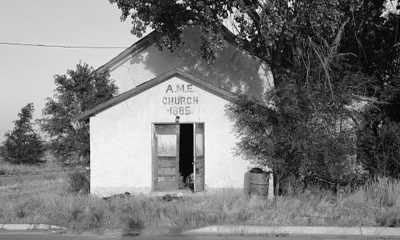

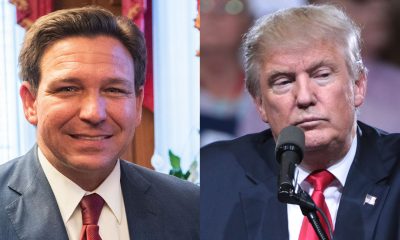

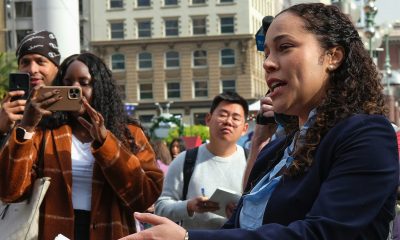

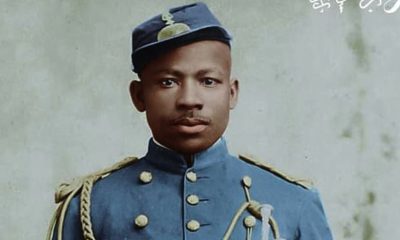

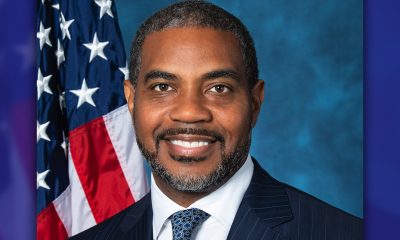

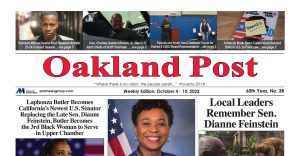












































Leave a Reply